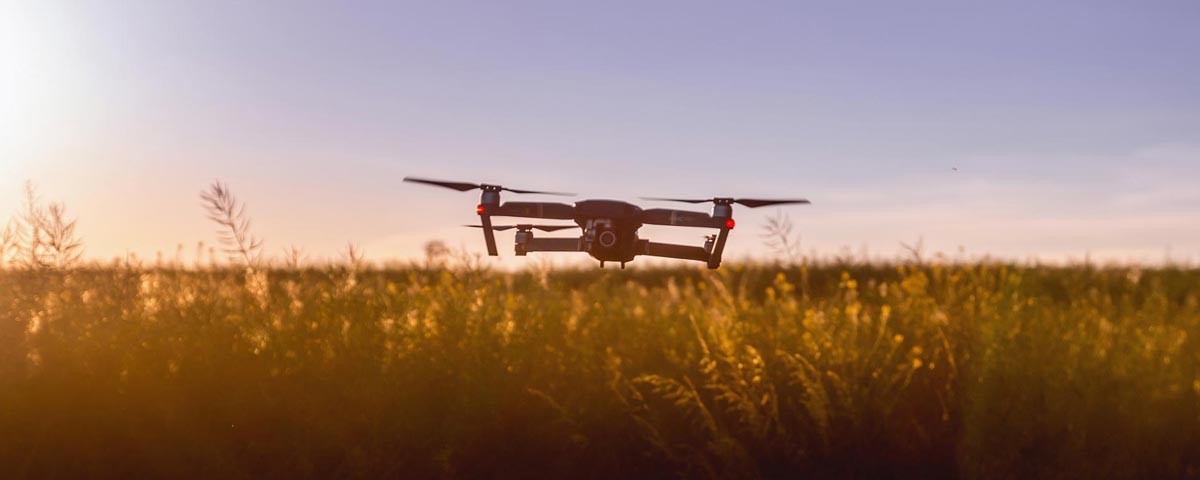The agriculture of the future: how will production change in 2030?

Ground-breaking changes are expected to occur between now and 2030, leading to a revolution in the agricultural sector. For decades, governments and large organisations have focused on food availability, seeking to make all staple foods of our diet accessible at all times of the year.
Lately, however, things have been changing, as new factors have called for a rethinking of the agricultural system as a whole. So how will food production change over the coming years? Forecasts for agriculture in the future predict that the most significant changes will consist in:
- New crops to meet new dietary trends
- Solutions to fight climate change
- New technologies that could soon become affordable for everyone
Let us look at how agricultural production will change over the next decade.
1) Organic farming and new trends
New dietary trends are having an increasing impact on farming practices. Certain sources are on an uptrend: the quantity of vegetables found on people’s tables has been growing more and more significant, as animal-source food consumption is falling. People are beginning to prioritise quality and diversity over quantity.
According to the European Union report 2019-2030 consumers are increasingly demanding when it comes to their food and such issues as health, nutritional properties, origin, sustainability and animal welfare are gaining crucial importance.
The new demand has a decisive impact on cultivated varieties, cultivation methods and livestock breeding. It is undisputed that certain market sectors, such as those of organic and “zero-kilometre” products will grow significantly over the next decade.
Community policies in terms of environmental impact have also encouraged certain production practices, such as crop rotation. However, the higher costs associated with some of these changes are offset by the added value of the products.
In the same report, the European Agency forecasts that the areas dedicated to agriculture on the continent will decrease by 178 million hectares by 2030. Crops will grow more slowly than in the past, although progress in seed selection and management will still help farmers to achieve an overall increase in production.
2) Fighting climate change
Climate change will change our production methods in a decisive way (we discussed this topic in this in-depth study on climate and agriculture), affecting factors such as rainfall, temperatures and soil quality. Consequently, we must begin to address these changes adopting certain strategies.
The new climate change report of the European Environment Agency offers some recommendations, first and foremost, adopting precision farming tools, which improve production and optimise the application of fertilisers and crop protection chemicals.
It also recommends growing crops that are more resistant to heat and cold waves, as well as to drought and pests. Cover crops should be used during the winter period to protect the soil, while generally speaking crop rotation greatly benefits the soil.
Other recommendations from the European agency for the next decade include optimising irrigation, sustainable production in greenhouses and better animal fodder.
3) New technologies for agriculture
Lastly, technology is making giant steps forward and the results will soon be visible. Over the last few years, we have witnessed the introduction of many new technologies. Up until 10 years ago, such tools as Isobus and assisted driving would have seemed like science fiction. Today, they are accessible to everyone (find out more about the agricultural technologies available now).
More futuristic technologies are expected during the next decade – we might see robots and drones roaming our fields, collecting data and taking care of our crops with increasing accuracy.
Fertilisation, weeding and even harvesting might be managed by artificial intelligence, while next generation robots will also be able to offer suggestions on how to optimise production and increase crop yields.
Agricultural drones will be used in land mapping and problem detection. They are also likely to be used to spray crops quickly and precisely in the future, without wasting chemicals, thanks to sophisticated equipment.
Data collection will also be integrated with satellite crop monitoring systems to keep things under control at all times and gather exhaustive information so as to take action quickly if necessary.
However, new technologies are not just about digital machinery and tools. As a matter of fact, genetic engineering will play a very important role. We are all familiar with GMOs. However, New Breeding Techniques are emerging as the new front line now.
Using the genome editing technique to modify specific parts of plant genes, it is now possible to obtain new plant varieties that are more productive and more resistant much faster than traditional cross breeding and hybridisation techniques would allow.
McCormick has always been at the side of those working in the agricultural sector to meet the great challenges of today and tomorrow with cutting-edge solutions and efficient technologies.
Discover all the technologies available in McCormick tractors:
